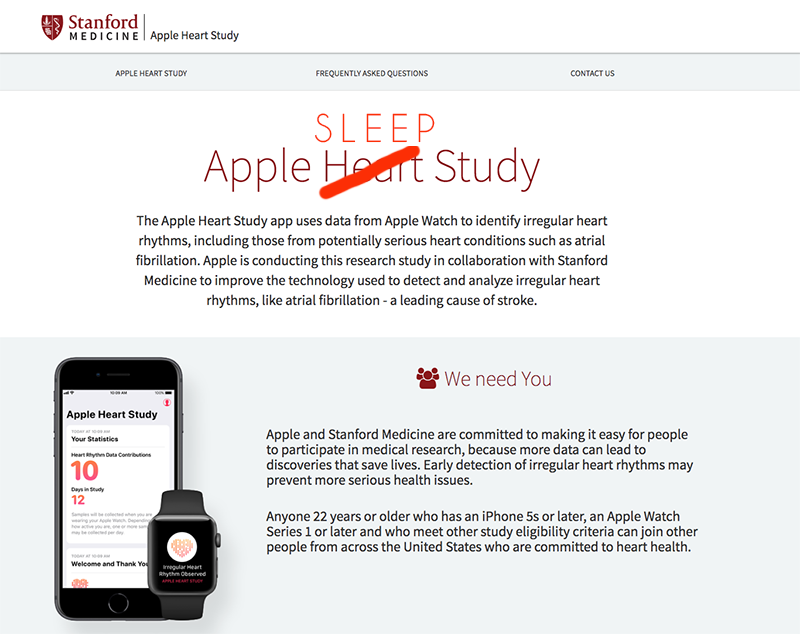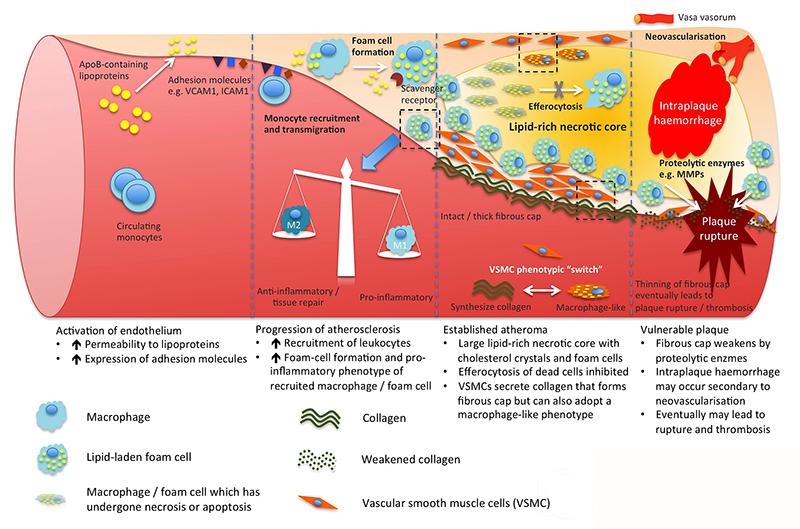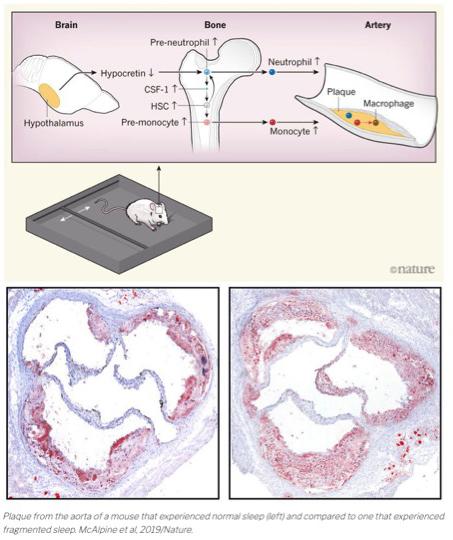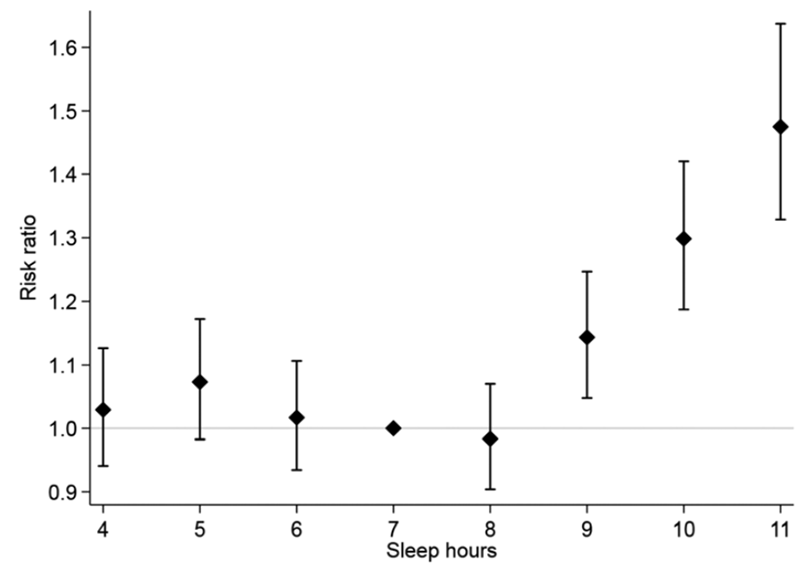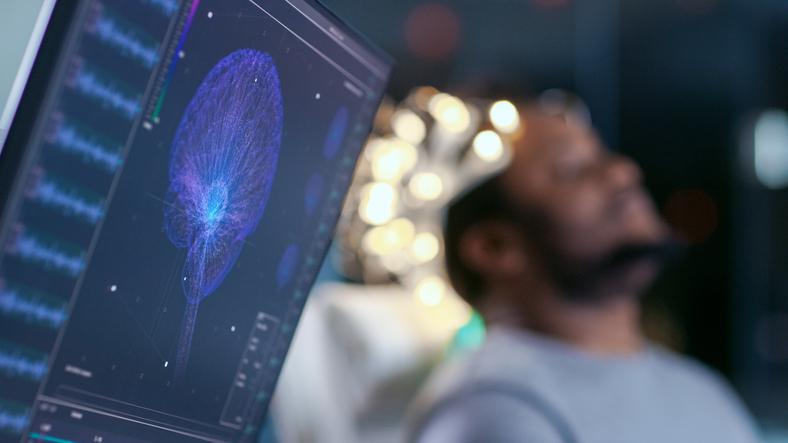Sleep science and wearable technology - is this the next cool kid on the block?
Any health technologists (aka nerds in the nicest possible sense!) worth their gold would have predicted the surge to prominence of the current wave of wearable technology. From Fitbit to Apple Watch - they are simply everywhere!
The breaking results of the unprecedented Apple Heart Study announced this week [1] at the American College of Cardiology (ACC) conference in New Orlean, despite all the caveat of its limitations, provided a glimpse of the future of how wearable technology can be utilised to improve our health being.
We are all too familiar with how wearable technology can help track our physical activity / running distances / steps taken each day, etc; but one important area that wearable technology can really transform our understanding is that tranquil few hours each night when our conscious mindfulness rests - our sleep.
Circadian rhythm and molecular clock on cardiovascular health
Rhythmicity is an inescapable fact of life. At the level of our Universe and our solar system, the Earth goes round the sun every 12 months for the past 4 billion years, and our Earth turns on its own axis every 24 hours - that is the core of circadian rhythmicity. Almost all life forms on this planet have evolved some kinds of circadian rhythmicity to anticipate the daily changes caused by this earthly rotation.
The molecular clocks that control circadian rhythms are being revealed as important regulators of physiology and disease. In humans, circadian rhythms have been studied extensively in the cardiovascular system. Many cardiovascular functions, such as endothelial function, thrombus formation, blood pressure and heart rate, are now all known to be regulated by the circadian clock. Additionally, the onset of heart attack, stroke, arrhythmias and other adverse cardiovascular events also show circadian rhythmicity [2].
We all know by now the importance of leukocytes (particular macrophages and T-lymphocytes) accumulation and turnover in atherogenesis (inflammatory fatty deposit inside our arteries that ultimately causes heart attack / stroke, etc) [3, 4]; a recent study even shed light in the novel molecular relationship between circadian rhythms and homeostatic processes that governs cell fate by apoptosis, necrosis, and autophagy [5].
Why does sleep matter?
A fascinating study published by a Harvard group in US recently shed lights into how sleep protects against atherosclerosis [6]. The authors showed that sleep fragmentation in mice led to more pro-inflammatory (Ly-6C high) monocytes and these mice went on to develop larger atherosclerotic burden. They even worked out the molecular mechanism via the myelosuppresive effect of the lateral hypothelamus produced, wake-promoting, stimulatory neuropeptide hypocretin. Writing in the most respected scientific journal Nature, the authors showed that persistent sleep disruption causes the brain to signal to the bone marrow to increase the production of inflammatory cells and promote atherosclerosis.
Conversely, too much sleep can also be bad for you. Across the pond in the UK, researchers from the Keele Cardiovascular Research Group recently conducted a dose-response meta-analysis on the duration of sleep and cardiovascular outcome [7]. They reviewed 74 studies including over 3 million participants and found a "J-shaped" relationship between sleep duration and mortality and incident cardiovascular disease. The authors found that duration of sleep >8 hours or deviation from the recommended 7-8 hours sleep was associated with increased mortality risk. Subjective poor quality of sleep was also associated with a significant increase in coronary artery disease.
How can wearable technology such as Apple Watch help?
The research above sent a very powerful message - the duration / quality of sleep or the lack thereof should no longer be viewed as a badge of honour or pride. The fact that our ex-prime minister Margaret Thatcher famously claimed to only sleep 4 hours a night probably contributed to her multiple rumoured strokes / mini-strokes and her eventual dementia and demise (although in her credit, the Iron Lady did live to 87 years old!). Our wearable technology today, such as the Apple Watch, are equipped with GPS and accelerometer to monitor our each and every move and are poised to be the crucial key to unlock our understanding of the relationship not just for physical activity but also in sleep science and cardiovascular health. A lot of the previous sleep research has to rely on either a small study population in fully monitored sleep labs, or relying on self-reported sleep questionnaire to answer some of the most important questions. What the Apple Heart Study [1] has shown is the potential to capitalise this technology for global large scale prospective clinical studies.
Apple reported a global sales of an estimated 23 million Apple Watches in 2018 according to some analysts. Let's allow this number to sink in and let me repeat this...TWENTY-THREE MILLION Apple Watches were shipped globally in 2018. If only 1% of these Apple Watch owners would participate in a global sleep study, we would have captured 230,000 participants of different age, sex, and ethnic origin. This invaluable cohort of data would have accurate serial physiological measurements of important biological parameters including heart rate, sleep duration, and other surrogates for sleep quality such as sleep interruption e.g. by sleep apnoea.
As a taster of what to come, hot off the press from Nature Communication last week saw a genome-wide association study (GWAS) identifying 78 genetic loci for sleep duration supported by accelerometer data [8]. The authors looked at 446,000 individuals from the UK Biobank using GWAS and found 78 genetic loci that is associated with sleep duration independent of other known factors. Separate GWAS for short (<7 hrs) and long (>9 hrs) sleep relative to the 7-8 ("normal") sleep duration further highlighted 27 loci for "short sleepers" and 8 loci for "long sleepers". Functional annotation of the identified loci revealed compelling candidate genes in the dopamingergic (DRD2, SLC6A3), MAPK/ERK, orexin receptor, and GABA signalling systems. Pathway analyses of these genes indicated enrichment of pathways including striatum and subpallium development, mechanosensory response, dopamine binding, catecholamine production, and even long-term depression.
With the advanced computation now made feasible in our smartphones and the financial weight of the tech giants, in the next few years, we will no doubt see an explosion of novel insights and knowledge in sleep science. Not to mention the application of these scientific insights into designing sleep apps to promote good sleep hygiene so we can all enjoy good quality 7-8 hours sleep every night.
Reference:-
1. www.acc.org/latest-in-cardiology/articles/2019/03/08/15/32/sat-9am-apple-heart-study-acc-2019
2. Cmko S, Du Pre BC, Sluijter JPG, Van Laake LW. Circadian rhythms and the molecular clock in cardiovascular biology and disease. Nat Rev Cardiol 2019 Feb 22. doi: 10.1038/s41569-019-0167-4
3. Choudhury RP, Chai JT, Fisher EA. Biology and pathology of atherosclerosis. Chapter 13.1 Oxford Textbook of Medicine: Cardiovascular disorders. 2016
4. Chai JT, Ruparelia N, Goel, A. et al. Differential gene expression in macrophages from human atherosclerotic plaques shows convergence on pathways implicated by genome-wide association study risk variants. Arterioscler Thromb Vasc Biol. 2018 Nov;38(11):2718-2730. doi: 10.1161/ATVBAHA.118.311209.
5. Rabinovish-Nikitin I, Lieberman B, Martino TA, Kirsherbaum LA. Circadian-regulated cell death in cardiovascular diseases. Circulation. 2019 Feb 12;139(7):965-980. doi: 10.1161/CIRCULATIONAHA.118.036550
6. McAlpine CS, Kiss MG, Rattik S, et al. Sleep modulates haematopoiesis and protects against atherosclerosis. Nature. 2019 Feb;566(7744):383-387. doi: 10.1038/s41586-019-0948-2.
7. Kwok CS, Kontopantelis E, Kuligowski G. et al. Self-reported sleep duration and quality and cardiovascular disease and mortality: a dose-response meta-analysis. JAHA 2018;7:e008552. doi: 10.1161/JAHA.118.008552.
8. Dashti HS, Jones SE, Wood AR. et al. Genome-wide association study identifies genetic loci for self-reported habitual sleep duration supported by accelerometer-derived estimates. Nat Commun. 2019; 10: 1100. Published online 2019 Mar 7. doi: 10.1038/s41467-019-08917-4

